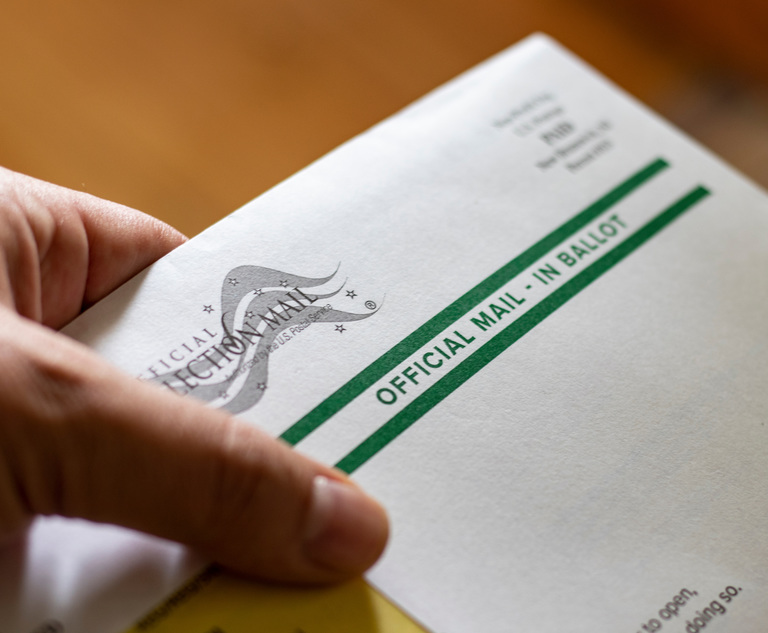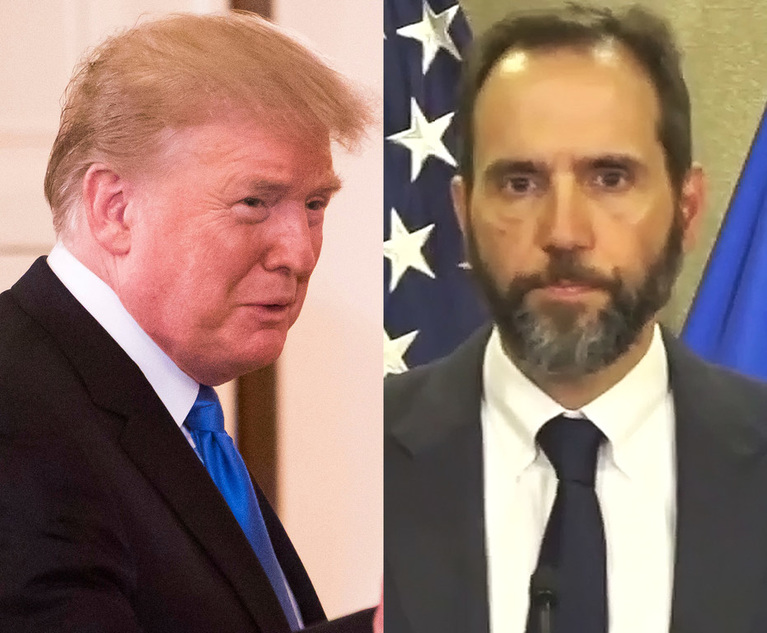Texas Attorney General Ken Paxton has had a busy year litigating a broad array of issues, most of them directed at blocking Biden Administration initiatives.
Paxton’s office has attacked public and private sector climate change policies in defense of the state’s oil and gas industries. He has deployed numerous tactics to stop federal and nonprofit organizations’ policies on immigration.
Now that Texas has outlawed clinical abortions, he has been focusing on ending pharmaceutical abortions, restricting access to contraceptives and persecuting any party that assists women who travel out of state for abortions.
He launched several cases against social media companies on issues addressing alleged censorship, data privacy and parental controls to protect minors.
Other issues of note include lawsuits over gun control, and the state’s participation in multi-state litigation over the opioid epidemic, manufacturers of PFAS (polyfouroakyl substances known as forever chemicals), the Johnson & Johnson asbestos-contaminate talc products, and deceptive trade practices by cell phone service providers.
What follows is by no means a complete list of the attorney general’s activities for the year. This barely scratches the surface. Looking at the year in review, we highlight those sectors of the civil law where Paxton’s office had the broadest effect.
Climate Change

On Dec. 20, Well Fargo announced its withdrawal from the Net-Zero Banking Alliance, an organization whose mandate is to reduce the planet’s carbon footprint by focusing on sustainable green energy and other solutions, but in Paxton’s view is “an anti-energy activist organization” that prioritizes “a radical climate agenda over consumer and investor interests.”
A recent Texas law, Senate Bill 13, forbade financial institutions that boycott oil and gas industries from doing business with Texas agencies. In October 2023, Paxton opened a review into Wells Fargo and other banking institutions.
On Jan. 26, Paxton announced Barclays could no longer underwrite municipal bonds in Texas because of its membership in the Net-Zero Banking Alliance.
Nov. 27: Paxton sues Blackrock, State Street Corp. and Vanguard Group for “conspiring to artificially constrict the market for coal” through alleged anti-competitive trade practices. Paxton noted the asset managers use their combined influence over the market to pressure coal companies to accommodate green energy goals with the goal of reducing coal output by more than half by 2030.
July 2: Paxton, as part of a multi-state attorneys general action, blocked a Biden Administration ban on approving applications to export liquified natural gas.
June 14: Paxton joined a coalition of 19 states to challenge Federal Energy Regulatory Commission rules granting itself more oversight over the nation’s electrical grid and forcing states to cover the cost of regional transmission lines to support green energy generation.
The Border and Immigration

Dec. 20: The Texas Supreme Court granted First Liberty Institute’s motion to participate in oral argument in Paxton v. Annunciation House. Paxton failed in trial court to remove the Catholic organization’s nonprofit status on grounds it harbors dangerous illegal aliens, an accusation the church and El Paso County deny and religious organizations have called an affront to the state’s religious freedom law.
Dec. 17: Paxton, in concert with the state of Missouri, petitioned a federal court from stopping the Biden Administration from “illegally selling segments” of the border wall.
Oct. 18: Texas argued for an end to DACA (Deferred Action for Childhood Arrivals) in oral argument at the U.S. Court of Appeals for the Fifth Circuit. A decision is pending.
Nov. 27: The Fifth Circuit stopped the Biden Administration from removing concertina wire being used by Texas to deter border crossings.
Nov. 8: Paxton secured a final judgment in federal district court permanently blocking the Biden Administration’s “parole in place” policy for undocumented immigrants.
Aug. 1: Paxton stopped a Biden Administration attempt to redirect funds statutorily obliged to border wall construction.
July 31: The Fifth Circuit, in an en banc ruling, denied a Biden Administration attempt to remove buoys in the Rio Grande that Gov. Greg Abbott had installed to impede border crossings.
Abortion and Contraception

Dec. 13: Paxton sued a New York doctor and founder of Abortion Coalition for Telemedicine for providing abortion-inducing drugs to a Collin County resident.
Dec. 5: The Biden Administration dropped its attempt to enforce a rule, in the face of a Texas challenge, that would provide contraceptives to minors without a parent’s notification.
Oct. 7: The U.S. Supreme Court declined to hear a Biden Administration appeal on a rule it issued that defined the Emergency Medical Treatment and Labor Act to require emergency medical care at hospital emergency rooms for pregnant women in distress. Paxton called it “a win protecting the rights of Texas hospitals and doctors.”
Sept. 27: Paxton sued the city of Austin to prevent the city’s use of public money to fund expenses for women traveling out of state for abortions.
Sept. 4: Paxton sued the U.S. Department of Health and Human Services to stop a rule restricting the state’s to access medical records, including out-of-state records, to investigate medical procedures.
May 31: The Texas Supreme Court upheld the state’s Human Live Protection Act, also known as the “Texas Heartbeat Act.”
Feb. 2: A California federal court denied Yelp’s preemptive lawsuit against a Paxton lawsuit accusing Yelp of using misleading language regarding Texas facilities that counsel pregnant women to use alternative options instead of abortions.
Election Law

Nov. 4: Paxton sued the U.S. Department of Justice for dispatching federal agents to monitor Texas elections. That same evening, the DOJ agreed not to enter Texas polling and central count locations.
Oct. 24: Paxton filed a Freedom of Information Act request with the DOJ to investigate alleged federal agency intimidation of Elon Musk over his voter registration program; a Musk super PAC launched a registration program giving away $1 million daily to randomly selected swing state voters, which was challenged by a district attorney in court in court Philadelphia.
Oct. 21-24: Paxton petitioned the Federal Election Commission to investigate the fundraising practices of ActBlue, a Democratic Party-aligned fundraising platform. He then made a criminal referral to the DOJ alleging “suspicious actors” making illegal straw donations.
Oct. 22: Paxton sued the U.S. Department of Homeland Security for refusing to comply with his efforts to verify citizenship status of “potentially ineligible people registered to vote,” based on the state’s inability to compare Texas-issued drivers licenses and identification cards to voter rolls.
Oct. 16: Paxton secured a stay at the Fifth Circuit enabling a provision of Texas election integrity law that banned ballot harvesting.
Aug. 21: A Paxton Election Integrity Unit raided the homes and offices of local Democratic Party volunteers in three counties based on allegations of ballot harvesting in the 2022 election. The League of United Latin American Citizens accused him of conducting a political intimidation campaign.
Gun Control

Aug. 14-Sept. 27: Over a period of five weeks, Paxton litigated against the city of Dallas and the nonprofit State Fair of Texas to stop the organizations ban on firearms at the state fair. The trial court, court of appeals and Supreme Court of Texas ruled against him, and the high court in a concurrence opinion emphasized the incompetence displayed in the state’s arguments.
June 12: Paxton obtained an injunction in Amarillo federal court halting a U.S. Bureau of Alcohol, Tobacco, Firearms and Explosives rule intended to regulate private citizens’ buying and selling of firearms.
Social Media/Internet/Date Privacy

Dec. 12: Citing the intent to enforce the state’s Securing Children Online through Parental Empowering Act (SCOPE) and other laws, Paxton announced investigations into Character.AI, Reddit, Instagram, Discord and 11 other companies regarding privacy and safety practices for minors.
Oct. 3: Paxton filed suit against TikTok under the state’s SCOPE Act.
Aug. 13: Paxton sued General Motors for deceptive business practices for its collection and sale of private driving data to insurance companies without drivers’ knowledge or consent.
July 1: The U.S. Supreme Court vacated lower court injunctions obtained by Texas and Florida; both states tried to get social media websites to end their censorship protocols that affected right-wing voices. SCOTUS ruled the lower courts did not conduct proper analysis of the facial First Amendment challenges.
Feb. 26: Paxton enforced the state’s age verification law by filing suit against a major pornography distribution company that runs some of the largest porn websites, including Pornhub. Since then, numerous porn sites have closed access to Texas residents.
Trump Investigations

November: Since election day, Paxton has made several moves against special prosecutor Jack Smith and other law enforcement investigations into Donald Trump. Actions include filing an amicus curiae brief in the Eleventh Circuit in support of Trump; filing a FOIA at the DOJ to get records of “Smith’s corrupt investigation”; suing the DOJ in Amarillo federal court “to prevent potential destruction” of Smith’s records; and signing onto an Iowa attorney general cease and desist letter to encourage New York Attorney General Letitia James, Fulton County District Attorney Fani Willis, and Special Prosecutor Jack Smith to end their “unfounded prosecutions.”
Transgender Issues

Nov. 8: Paxton sued a second North Texas medical doctor for illegally providing gender transition drugs to more than a dozen children. The first case against a North Texas doctor was filed Oct. 17.
Oct. 30: Paxton sued an El Paso doctor for providing gender transition treatments to children.
Sept. 26: Paxton joined a multi-state lawsuit against the U.S. Department Health and Human Services to block a rule that would list “gender dysphoria” as a disability.
Sept. 24: Paxton sued HHS to stop a rule that would condition federal funding for foster care programs on acceptance of “sexual orientation” and “gender identity” ideologies.
Aug. 30: Paxton obtained a nationwide stay in federal court, blocking the Biden Administration’s attempt to require federally funded healthcare providers (i.e. veterans and military hospitals) to conduct “gender transition” surgeries.
July 17: The U.S. District for the Northern District of Texas rejected the state of Texas’ request that it vacate recent guidance from the U.S. Equal Employment Opportunity Commission on harassment and discrimination in the workplace as it concerns protections for LGBTQ+ individuals.
100th Lawsuit Against Biden
Nov. 11: Paxton filed Texas’ 100th lawsuit against the Biden Administration. The lawsuit aims to block a new rule by the Federal Communications Commission that limits states’ rights. In September, the FCC enacted new rules that significantly lower the cost of phone and video calls for incarcerated people. Paxton argues this preempts state laws and forces taxpayers to assume increased costs.







